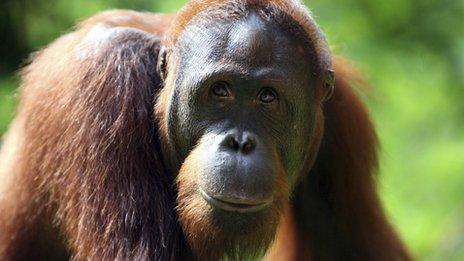What Nemley Jr's death means for fight to protect chimps
- Published
The death of the baby chimpanzee Nemley Jr, rescued from wildlife traffickers only to fade away in a zoo in Ivory Coast, has provoked outrage.
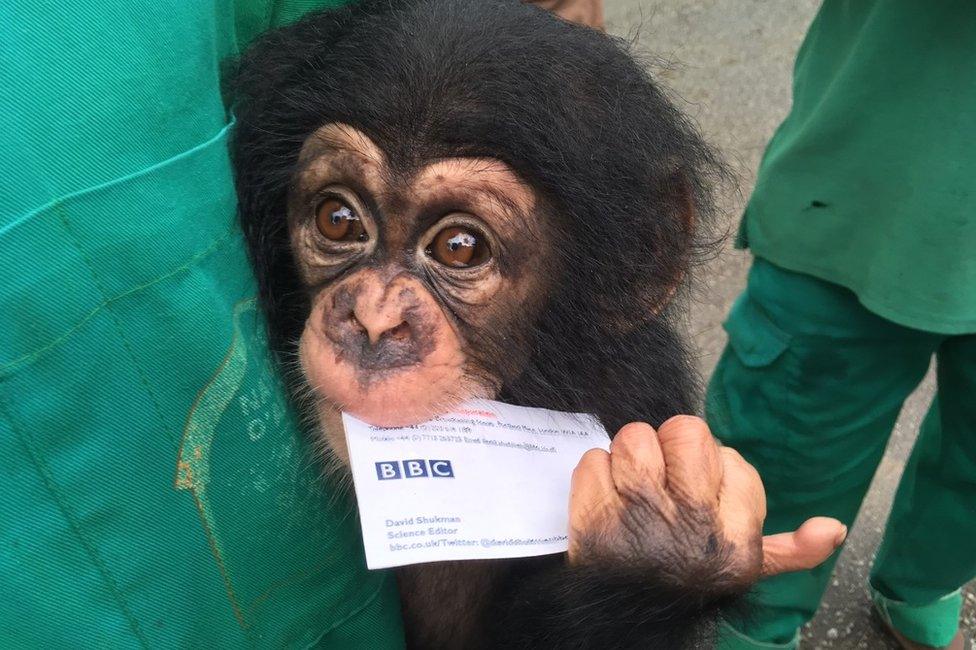
Nemley Jr chews a BBC business card
And after a BBC investigation that lasted more than a year, those of us involved in the work are finding his loss upsetting and also incredibly frustrating.
In the wild, infant chimps have a poor survival record. And youngsters rescued from traffickers have endured the trauma of losing their mothers and then being thrust into the unfamiliar world of humans, so many of them do not make it either.
In his last few weeks, Nemley Jr was given intensive care and dedicated support, so who or what is to blame for his shocking demise, and how best to save endangered animals such as chimpanzees from extinction?
This long and sad story involves the harsh economics of the black market, the corroding influence of corruption, and the impact on the natural world of the mass consumption of which we are all a part.
Chimps for sale: The undercover report in full
Add to that an indifference to wildlife among some in West Africa that is bewildering to outsiders, and you have a context in which an infant chimp's chances are slim.
Supply and demand
The tale begins in the jungles where poachers know there is good money to be made out of chimpanzees. The adults are sold for bushmeat, and an infant - seized alive - is like gold in the illegal pet trade.
So, poverty plays a part, along with the knowledge that wealthy buyers in the Gulf states and Asia pay handsomely for a baby chimp that is cute and amusing, before it becomes too strong and has to be put down or abandoned.
Next, the criminal middlemen have the contacts to match that demand with supply. The men we dealt with bought Nemley Jr for 300 euro (£264) and were offering him to our undercover reporter for $12,500 (£9,630).
They had been selling baby chimps and other endangered animals for years, operating out of several West African countries, boasting on social media, casually using the same bank account for years, lubricating their way through pliable bureaucracies, and untroubled by the law.
It was our investigation that led to a jail sentence for Ibrahima Traore and his uncle Mohamed, and what is notable is that these were the first convictions for wildlife crime in the history of Ivory Coast.
The Ivorian detectives are rightly proud of that, as are the courts. But the maximum penalty is only 12 months in prison, and the two traffickers are out already. Tougher penalties are being discussed but are not in force yet.
You might think that there would be a more vigorous response in a country that has seen its chimpanzee population decline by 90% in the past 20 years.
Only an estimated 2,000 still live in the wild, in a few supposedly protected areas. I say "supposedly" because Nemley Jr may have been captured in one of them.
This is why an indifference to wildlife matters. After the traffickers were arrested last year, and taken to the Interpol office in Abidjan, an official photographer was summoned.
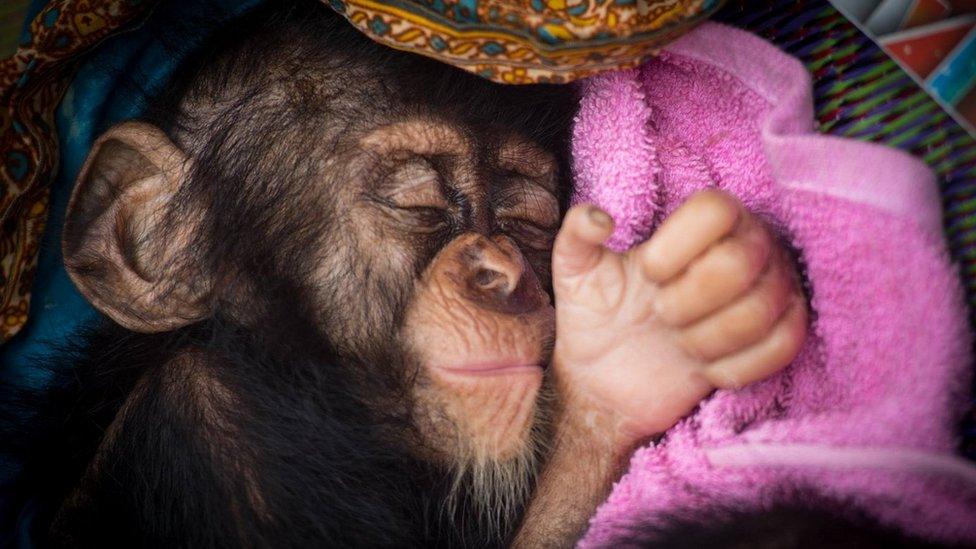
The story of Nemley Jr's rescue made headlines around the world
Looking at Nemley Jr cowering on the floor, he asked me what the fuss was all about. "Animals," he told me, "that's something white people care about."
I replied that wildlife was part of his country's heritage and it risked being lost. The photographer raised a cynical eyebrow and turned back to his camera.
And that might explain the attitude of some government officials in Ivory Coast. Wildlife is not a high priority. While Ivorian detectives responded swiftly, messages to the Ministry of Water and Forests often went unanswered.
Requests to film Nemley Jr took months to be approved. Our proposal for an internationally-recognised vet to be sent in to check him over and to recommend a plan for his care was delayed and eventually refused.
One idea did receive a very swift reply.
Several specialist sanctuaries caring for baby chimpanzees - in Liberia, Uganda and Kenya - had offered to take Nemley Jr.
National pride
But when we wrote to the ministry, suggesting that he be allowed to leave - if only to lessen the burden on Abidjan zoo - a senior official refused to accept our letter.
Nemley Jr was from Ivory Coast, he said, and he would stay in Ivory Coast, hinting that to move him would be neo-colonialist thinking.
It is true that the government of Ivory Coast faces multiple challenges: the aftermath of a civil war, mutinous army units demanding their unpaid wages, an all-pervading poverty.
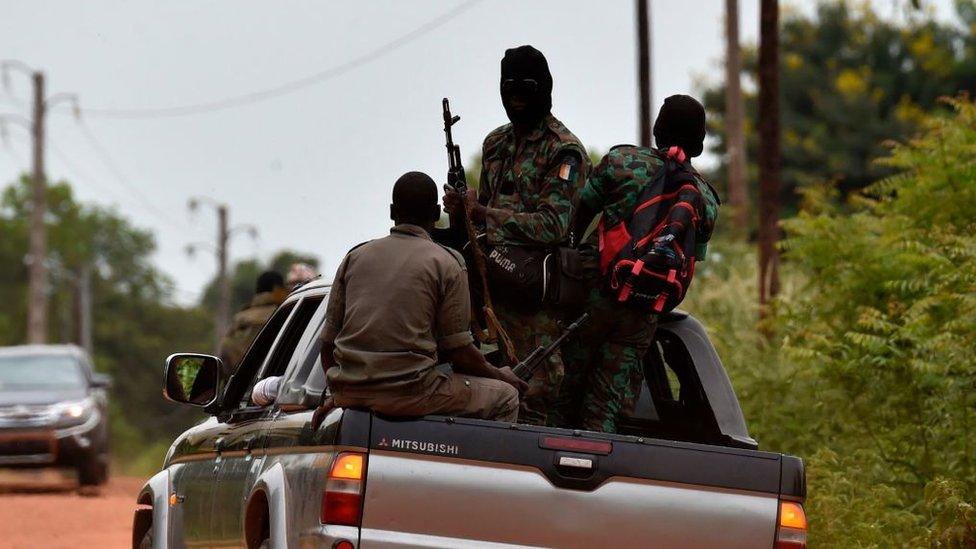
Soldiers at a number of Ivory Coast's military bases fired weapons and blocked streets over a pay dispute in May
But under the international CITES treaty, any country that promises to tackle wildlife trafficking must also set up a facility to care for confiscated animals. Some neighbouring countries have done this.
Ivory Coast instead relies on Abidjan zoo.
Disturbing
It is easy to be critical of a zoo in a developing country: too few staff, extremely poor pay, no money for repairs, not enough food for the animals, animals in often distressing condition.
And being critical raises the awkward question of whether the animals should be fed if the keepers can't afford food for their own families.
But Abidjan zoo is a disturbing place, underfunded and overcrowded and unable to cope with each new influx of animals.
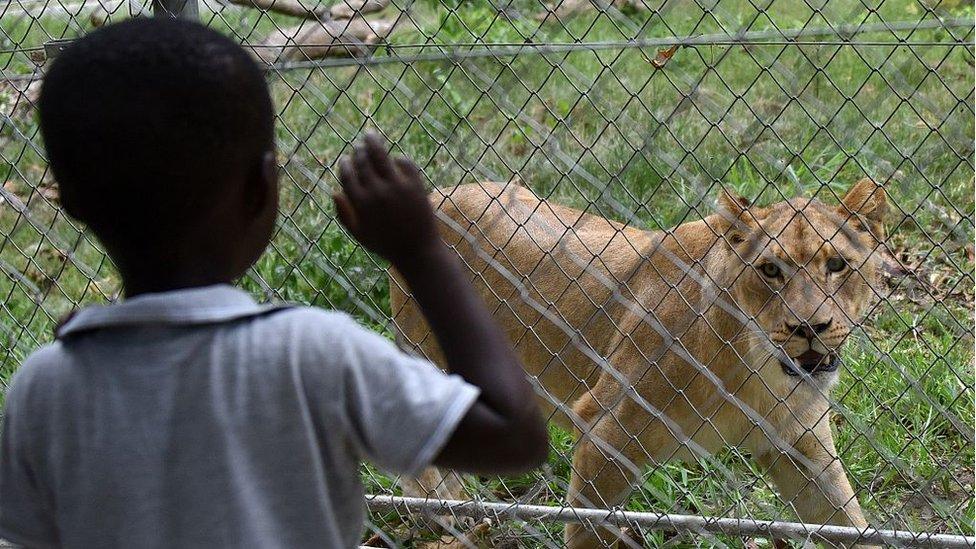
An enclosure for adult chimpanzees is damaged, which means they have to remain in cages. A cheetah is kept in a hut the size of a kennel. Lions go hungry.
And caring for an animal as delicate as an infant chimpanzee requires 24-hour attention. Several have died in the years before Nemley Jr was brought there.
Sarah Crawford, the volunteer who cared for Nemley Jr to the very end, says she was struck by the difficulty of caring for an orphaned chimp when "they need TLC 24/7, which is almost impossible in a zoo setting".
She and others are pushing to create a new sanctuary, in Nemley's name, to be dedicated to caring for chimpanzees. Some wildlife experts wonder whether the zoo could be transformed into a refuge for rescued animals with conservation at its heart.
From our experience, any response from Ivory Coast will be slow and possibly unwilling.
Role for consumers?
Pride is a factor if outsiders are seen to be issuing commands. And any centre for rescued chimps needs to be managed not for years but for decades so funding has to keep flowing, and not go astray. But it is not impossible: there are successful examples in other countries.
So do we blame Ivory Coast for what went wrong?
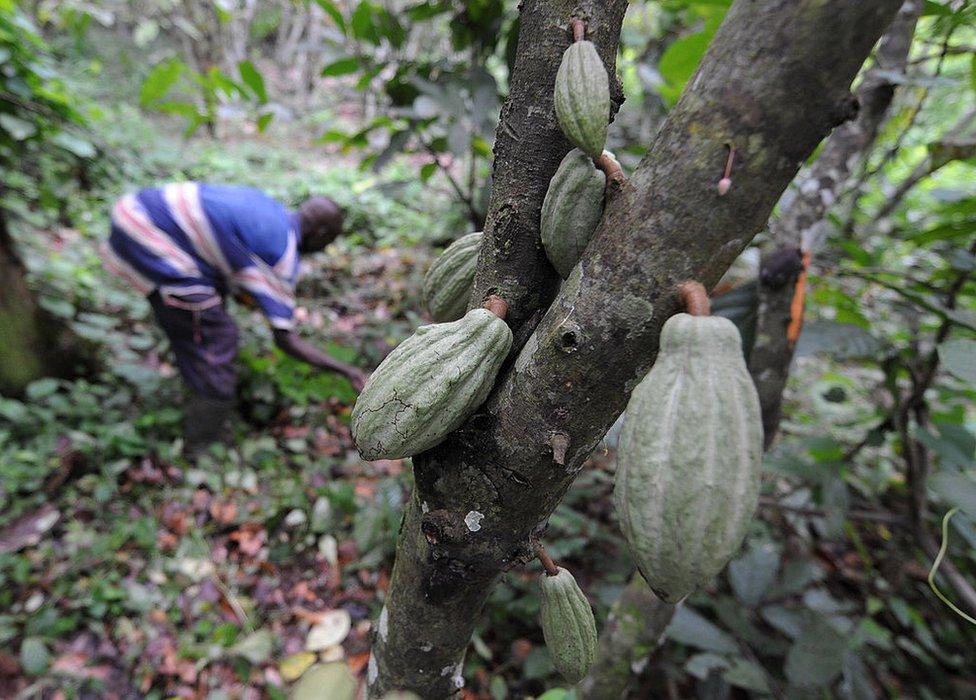
Cocoa is a mainstay of the Ivory Coast economy, but production encroaches on the country's jungles
Maybe, but then consider this: nearly half of the world's cocoa comes from Ivory Coast.
Cocoa and palm oil and timber have all encroached on the country's jungles, shrinking the habitats of the chimpanzees and limiting their chances of survival.
We can condemn the rich buyer who pays for a baby chimp whose family has been slaughtered. We can criticise indolent officials.
But we might also ask whether the products we're buying and eating and using might contain ingredients grown on land where dense forest was once home to chimpanzees.
Follow David on Twitter., external
- Published28 June 2017
- Published9 June 2017
- Published9 March 2017
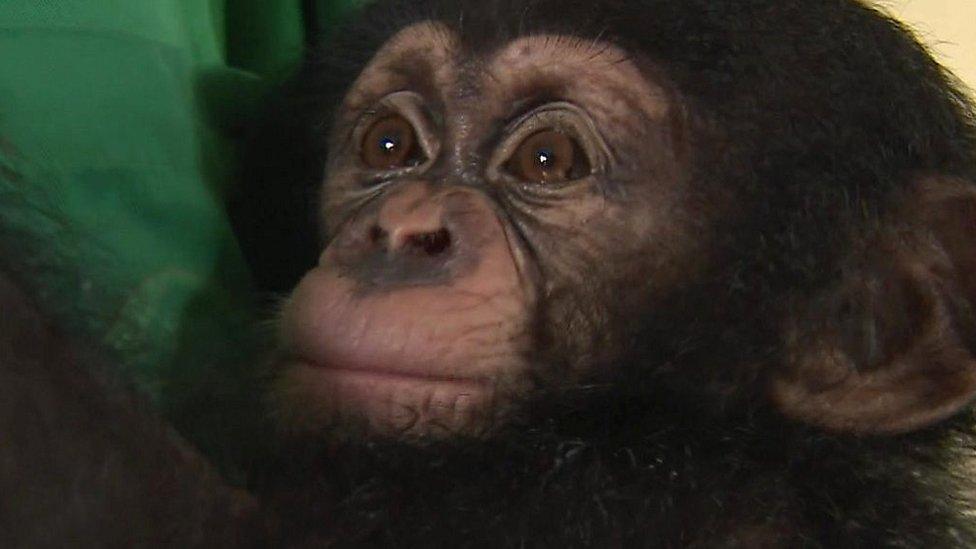
- Published9 March 2017
- Published2 February 2017
- Published29 September 2016
